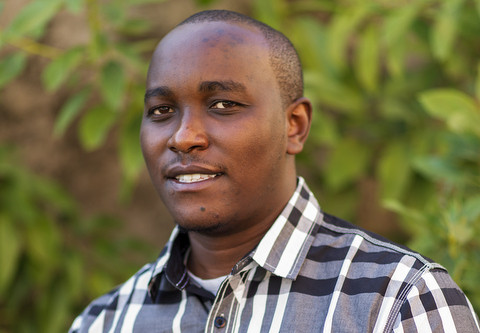- Deras enda fel var att de var på rätt ställe och gjorde rätt sak, nämligen utbildade sig, skriver Stephen Giochi, Forum Syds landchef i Kenya efter terrorattacken i Garissa, då 147 unga studenter miste livet.
Stephen Giochi beskriver det farliga i att unga välutbildade, landets framtid, rekryteras till terrorceller och att landets ledare och befolkning nu har svåra och tuffa frågor att hantera. Kenya som har i decennier varit ett enat land hotas nu av splittring.
- Myndigheterna bör nu involvera alla: religösa grupper, unga, gamla, partier för att vi ska kunna stå emot detta.Vår solidaritet över alla skiljelinger: religiösa, politiska och klangränser är, och kommer alltid att vara, vår starkaste tillgång mot terrorism.
When Did the Rain Start Beating Us? Garissa Terror Attack
After Westgate terror attack in 2013 and the commitments made by the top political leadership in Kenya, many including myself thought that this would be the end of this brutal and senseless shedding of innocent blood in Kenya through the hands of terrorists. The evil hands are back and with more heinous atrocities, 147 innocent and promising young lives lost in Garissa University College on the dawn attack of Thursday 2nd April 2015. Young minds whose only mistake was to be at the right place and doing the right thing which civilized world treasures - education.
The Somalia based terrorists Harakat al-Shabaab al-Mujahideen (HSM) commonly referred to as al Shabaab was quick to claim responsibility for this attack and promised to paint Kenya red with more future attacks. This latest threat does not come as a surprise to any Kenyan or other nationalities living in Kenya since Kenya Defence Forces –KDF entered Somalia in hot pursuit of this terrorist group in 2011 and until this moment fighting under AMISOM. Al Shabaab has always made its threats come true and Garissa is one of those sticky reminders.
In Garissa, Westgate and other attacks, these terrorists have celebrated killing non- Muslims but they do not tell us what religion their victims in Somalia, Yemen, Iraq etc are. The civilized world must stand up against shallow anchored terrorist agenda. Some of the attackers have now been revealed to be born and educated in Kenya and this poses a very dangerous perspective of the ever evolving terror world.
Young and educated persons are now a target for terrorist recruitment cells. It is dangerous because such age bracket of people in Kenya and other countries in Africa constitute a significant majority of the population and with no meaningful employment or livelihood.
Despite sharing an extended border with Somalia which has been largely ungoverned especially on the southern part, many questions however continue to linger in my mind especially on the efficiency of our security apparatus to deal with this kind of threat.
Could we have done better to respond to this threat, did the killings have to continue for nearly 10 hrs in the case of Garissa? Are there sufficient assets and counter terrorism strategies in place or shall we continue playing the popular political games of apportioning blame within and outside government? How has rampant corruption affected our security arrangements almost rendering them incapable of dealing with this threat? Why has our border with Somalia become so porous with towns and villages near this border almost ungovernable? Example the case of Mandera and other border towns.
What lessons can we draw from other countries and our neighbours already under AMISOM and other nations that have been able to put these blood terrorists at bay. An example is Ethiopia which has held its guard quite well against terror threats, and lastly what is the solution to the bulging population of unemployed youth? These are some of the questions the leadership and the people of Kenya must answer. They are tough but we must be bold to deal with them.
Kenyans have for many decades lived together as ONE people with little consideration given to one’s religion for them to be accepted as part of this society. This must not be changed by the terrorist agenda which is to divide us into religious cocoons. We mourn the lives lost but we should not forget that there exists real terror threats and authorities involved must review their intelligence gathering capabilities as well as the neutralization of these threats within the laws of the land.
Let the authorities involve communities of all religions, young and old in countering these threats, vigilance demands some sense of inclusion for all parties involved. Our solidarity across the religious, tribal and political divides is and will always remain our strongest asset against terrorism. This we must cultivate now and hence forth!
Stephen Gichohi
Country Manager Kenya, Forum Syd




